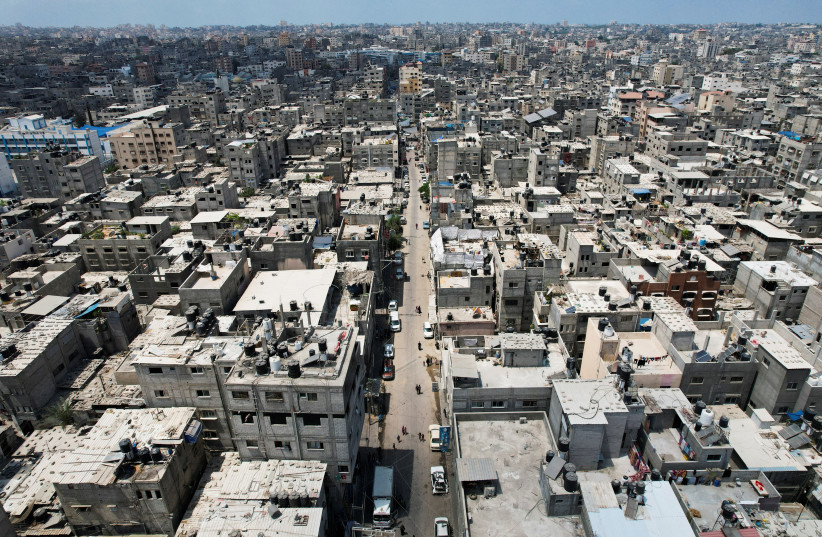A group of physicians planned to travel to meet another group of physicians, just a two-hour drive away. In almost any other place in the world, this would be a mundane and unremarkable occurrence. But this is no regular place, this is Gaza and Israel, and these are Israelis and Palestinians. This is a place where simple attempts to bring professionals from the same field together are considered radical political acts, a security threat and an impossibility.
For many years, Physicians for Human Rights Israel has sent delegations into Gaza on a regular basis. Once every month or so, our volunteer physicians travel the short car journey from their homes in Israel to the Erez Crossing, passing through checkpoints and interrogations into what seems like a parallel, impoverished, overcrowded universe. While in Gaza, our volunteers conduct surgical operations, and provide medical care and training that are otherwise unavailable to the Gaza Strip’s residents.
How are Israeli doctors getting into Gaza?
It has taken us years to build the relationships that allow us to do this work: we are the only Israeli organization allowed to enter Gaza. This, too, has major limitations: only Palestinian citizens of Israel are allowed in – no Jewish physicians may enter. Physicians must travel as a group and some of our volunteers are denied permits without explanation. Despite the challenges, however, it is possible.
Trying to move in the opposite direction is a whole other story.

In early August, we had plans to bring 26 Gazan physicians to Israel for training at the Israel Center for Medical Simulation (MSR) at the Sheba Medical Center. The selected physicians were meant to undergo a three-day course provided by Israeli doctors, on emergency and trauma care.
This should have been a rare and special event: an opportunity for Jewish-Israeli physicians to meet Palestinian colleagues from Gaza face-to-face. An opportunity for the Gazan physicians to leave the Gaza Strip briefly. A chance for them to be trained at a world-class facility, and improve their emergency care knowledge and skills, something that is so needed in Gaza.
A grant received through the European Union’s Peacebuilding Initiative was meant to cover the costs.
We did everything right. We booked the MSR facility months in advance. Instructors were selected. We reserved hotels. We applied to the Israeli military for permits for the Gazan physicians weeks in advance, well within the required time frame. We know from past experiences that the permit must be requested for the day before the course, because Palestinians leaving Gaza need to allow for a minimum of 3 hours to get through the questioning and physical searches at the crossing.
THE DAY before the course was scheduled to start, the permit requests were still not approved. We called the military again and again, pleading with them to find a solution. “It’s stuck with Shabak [the Israeli Security Agency],” we were told. Our best efforts to contact anyone who might be able to help led nowhere. The following day, with the course already scheduled to be underway, we reached out to all our relevant contacts in an attempt to find a last-ditch solution. Only at 6 p.m. that day were we told that 18 of the 26 permit requests were approved.
Having missed the bulk of the training, there was no longer any point in participants attending the last few hours of the course. We will schedule a new one in a few months and try it all over again. We know that nothing will be guaranteed, that we may again lose time, funds and a lot of effort in the process.
The latest hostilities in Gaza, once again, underline the importance of local physicians being properly trained in emergency care and trauma. After 15 years of Israeli blockades and repeated assaults, everyone who lives in Gaza knows that at any moment, Israel may decide to launch a renewed round of bombings and destruction. The question is not if it will happen again, but when, and how many people will be injured and killed next time.
During routine times, the blockade bars physicians from traveling to advanced study and training opportunities, and they are, therefore, unable to hone their professional skills. This is just one tragic manifestation of Israel’s complete control over Gaza. For the past 15 years, the Gazan healthcare system, alongside all other forms of essential infrastructure, has been barred from developing to meet the needs of the local population.
When a young father takes his little girl to the emergency room because she’s struggling to breath or when a daughter takes her elderly mother to be treated for heart attack symptoms, the local emergency teams lack the training and equipment to offer them the best care available. This, alongside the acute shortages of almost all basic medication and medical equipment, comes at a tangible cost in human life.
So, we will keep trying to bring physicians from Gaza out for training because we know there’s a greater chance they’ll be able to travel to this vital training with our help, as they have almost no chance of obtaining permits on their own. And most importantly, we believe that Israel’s blockade on Gaza must be challenged. We cannot accept that two million people are trapped in overcrowded and nearly unlivable conditions, indefinitely, without access to the most basic services we, in Israel, take for granted.
The writer is the director of resource development at Physicians for Human Rights Israel.
